| Last visit was: 25 Apr 2024, 14:45 |
It is currently 25 Apr 2024, 14:45 |

Customized
for You
Track
Your Progress
Practice
Pays
| FROM Nanyang Admissions Blog: Stay Resilient, Committed And Diligent |
|
Graduate Studies Blog  NANYANG PROFESSIONAL MBA STAY RESILIENT, COMMITTED AND DILIGENT “Don’t give up because it’s normal to go through an overwhelming period of juggling work, family and studies—more so in the first few months of the PMBA.” A few years ago, Dr. Alamelu Ramanathan Kurukal was in a dilemma and couldn’t see the next step in her career. Meanwhile, her aspiration of improving healthcare standards in Singapore through policymaking was growing. “As a medical doctor by training, I have a genuine desire to have an impact on patients, caregivers, the processes of curing disease and promoting health. My decision to pursue an MBA was hence a combination of my desire to bring change at a wider scale and an interest in institutional change,” she says. “I’ve always aspired to join the public service to serve the community on a systemic level, so that my contributions can have a broader impact on society.” Dr. Alamelu decided to do a part-time Nanyang Professional MBA (PMBA) in Nanyang Business School due to her hectic schedule. This way, she was able to commit to her work during the weekdays, and then give her full attention in the PMBA classes held on a full-day schedule every alternate weekend. At the tail end of the programme, Dr. Alamelu made a career switch to Singapore’s Ministry of Health (MOH) as a manager in the Home and Long Term Care department. In her current role, she plans and develops the licensing, inspection and audit processes that are under the Healthcare Services Act. She also reviews regulatory policies and looks into the compliance and enforcement of these standards for home and long term care in Singapore. She thinks out loud about the turning point in her life: “I was considering the PMBA while dealing with a personal challenge and an NBS Admissions Manager consistently checked up on me and nudged me to take the next step. She got me going with my PMBA applications. I went for it. Little did I know it would give me a huge jump-start that has brought me to my dream career.” Take a holistic approach to learning “Attend networking events, participate in case competitions, engage with external professors, talk to keynote speakers and guests, get to know peers such as the alumni” In the Strategic Management course, Dr. Alamelu learned about the value of strategic insight in diverse markets like agribusiness, household appliances, fintech, and healthcare. Strategic thinking, she discovered, is driven by essential principles and frameworks. “I use these strategy tools today to facilitate my systemic thinking in key issues and improve my analytical rigor,” she says. The programme has strengthened her soft skills, such as “having the tact and diplomacy to negotiate change with multiple stakeholders,” says Dr. Alamelu. “It has boosted my confidence in leading cross-functional teams too.” Apart from acquiring skills, Dr. Alamelu is especially grateful for her class mates and their deepening camaraderie. “A few of them are in public service. They readily offered me advice on the interview process; and on how to transition into and navigate my new career path,” she says. “Being able to tap into my peers’ vast experiences and expertise is a very precious benefit.” Dr. Alamelu says, “The reliable NBS network, which also works as a support group, is one of the greatest gifts from the programme. As we strive to succeed in our personal and professional lives, nothing is more fulfilling than having built lasting and sincere relationships along the journey.” Never compare yourself with others “Assess your success based on where you were when you started the programme. Don’t underestimate your achievements. We are all legends in our own right, so get ready to blaze your trail!” Dr. Alamelu feels that because the PMBA curriculum is so different from her medical degree, the programme turned out to be very refreshing for her. “For me, the learning journey was like a well-deserved break from work or a good time for personal development,” she says. “I looked forward to every alternate weekend!” This does not mean that it was always easy. Dr. Alamelu notes that the Strategy Projects At Nanyang (SPAN) segment—where PMBA participants work with organisations on real-world challenges—was especially gruelling. “SPAN will put your ethics to the test and train you to manage under pressure,” she says. “There will be difficulties in meeting expectations despite clocking in long hours during weekends, public holidays and after work.” Her father was her rock-solid pillar of support and continues to be. Dr. Alamelu says, “He constantly reminded me to strike a balance and to not over-exert myself to the point of exhaustion. Without him, nothing that I have achieved would have been possible.” Alumni Stories  |
| FROM Nanyang Admissions Blog: Testimonial From Zhong Shan |
|
Graduate Studies Blog 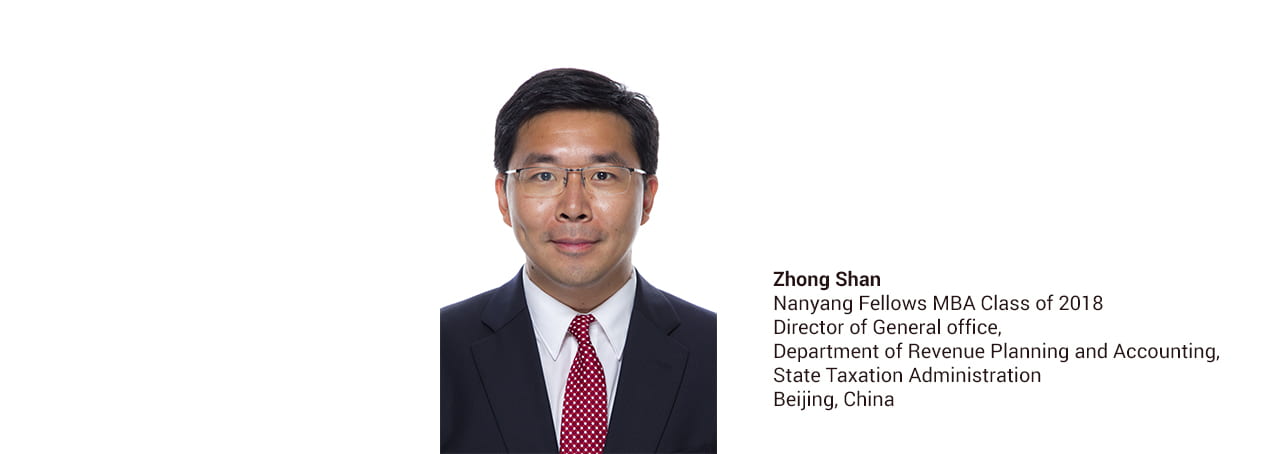 NANYANG FELLOWS MBA TESTIMONIAL FROM ZHONG SHAN I am a tax official working at the Headquarters of the Chinese tax authority in Beijing. When I took up a management role, I realized that my technical background inhibited my goal of becoming a renowned taxation expert and leader. I hoped that a training program could equip me with the necessary skillset in this ever-changing economy. I researched various MBA programs and found that Nanyang Fellows MBA was attractive with a unique curriculum tailored for both private and public sectors. I enrolled and was up for the challenge. The vast and rich learning experiences in Singapore and the USA had helped me gain a different perspective in managing business in China. I was able to apply what I learned to my work, leading to a promotion upon my return to China. Interacting with my peers from the private sector enabled me to understand different perspectives better and helped me serve the taxpayers better. In my current role, I deal with taxpayers’ claims and I am able to manage those relationships efficiently and effectively. Nanyang Fellows MBA Programme offers courses and training efficiently and pragmatically. Faculty are well-known, and their knowledge in leadership, economic and financial theories, business strategy, negotiation, marketing and technology management, etc., helps enhance my business understanding, analysis, management and leadership skills. More importantly, I treasure the friendships I forged and mentorship from professors. This is a lifelong learning experience for me. Thank you, Nanyang Business School! Alumni Stories  |
| FROM Nanyang Admissions Blog: “Balance For Better” Panel Discussion Organised By Women In Business Club |
|
Graduate Studies Blog  NANYANG MBA “BALANCE FOR BETTER” PANEL DISCUSSION ORGANISED BY WOMEN IN BUSINESS CLUB In conjunction with International Women’s Day, the Women in Business club, co-chaired by Pavani Suryapalli and Vanshika Dixit at Nanyang Business School (NBS), organised a panel discussion on the theme – “Balance for Better”. The discussion was moderated by Vanshika and attendees were post graduate students from NBS. The session aimed to provide the “workforce of tomorrow” with actionable points for achieving greater gender parity at their respective workplaces. The panel comprised a diverse mix of accomplished leaders from both corporate and academia – Prof Christina Soh Wai Lin, Dean of Nanyang Business School and NTU alumna; Mr Vivek Nath, Managing-Director, South & SE Asia, Willis Towers Watson and NBS Alumnus; as well as Ms Mallika Gadepalli, Director of Strategy, PropertyGuru Group. The World Economic Forum’s global gender gap report states that it will take us about 108 more years to achieve complete gender equality in the society. It is the need of the hour to close this gap sooner and reap the benefits of a gender-balanced world, both economically and socially. The panel discussion touched upon some major themes around gender parity like gender bias in recruitment, increasing automation in women dominated roles, lesser instances of women negotiating for salaries and how the role of men has evolved in achieving greater parity. Deliberating upon a LocalCircles study conducted in India which found SMEs are not willing to hire women because of the maternity benefits that they are required to provide for, Mr Vivek Nath impressed upon the need of having a care infrastructure within organisations so that the overall work environment is conducive for both genders to contribute. While women need special assistance during maternity, men have been longing to spend more time with their family for quite some time now. Organisations must have appropriate policies in place (paternal plus maternal benefits) to enable their workforce in balancing personal and professional priorities better. Emphasising upon the need to keep going, both Ms Mallika and Prof Christina advised the female attendees in the room to always keep looking out for one’s career. In case of times when personal priorities require greater attention, women must opt for a more flexible arrangement at work but never consider quitting as an option. This helps the woman stay relevant in the market and balance dual responsibilities better. Mr Vivek highlighted the importance of having an inclusive education system wherein choice of subjects is a gender-neutral process and women are not discouraged from opting for STEM related courses. Such measures at the start will ensure equal opportunities for everybody to choose a career for themselves and hone one’s skills according to the changing market requirements. This helps tide through the wave of automation better. On an ending note, all the panellists agreed upon the way women are more prone to underplaying their own capabilities and how the same is reflected in the way they apply for jobs or negotiate during salary discussions. They highlighted the need for confidence in oneself and exuding the same in every walk of life. The co-chairs, Pavani and Vanshika, expressed their gratitude to the panellists for gracing the occasion and sharing their insights; NBS staff for helping us organise the event and all NBS students for being an interactive and patient audience. The Club looks forward to more of such events in future. 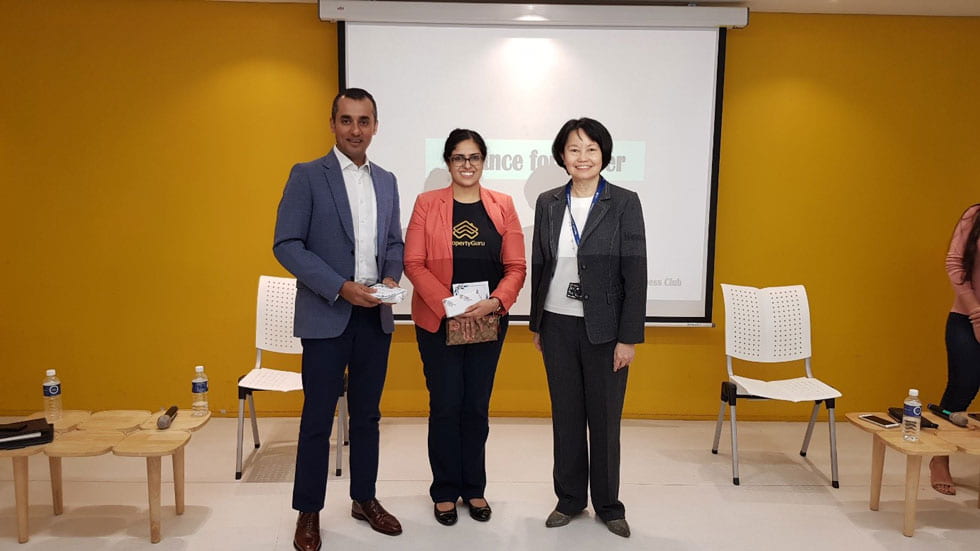 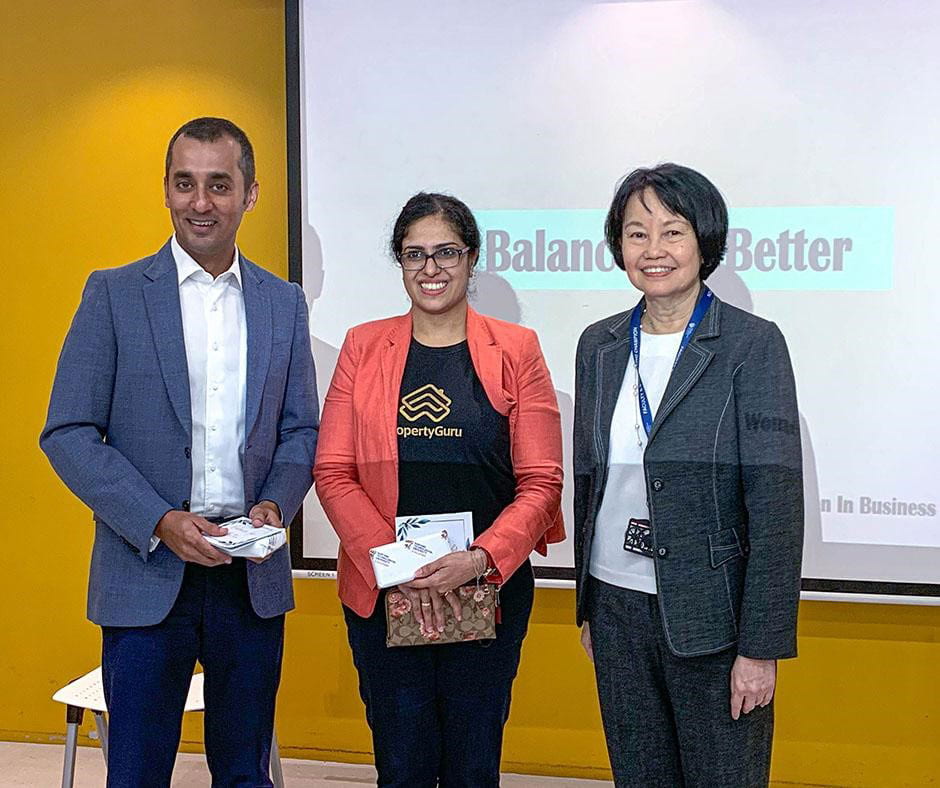 Panellists (L-R) – Prof Christina Soh, Ms Mallika Gadepalli and Mr Vivek Nath  Audience interaction with the speakers and guests. 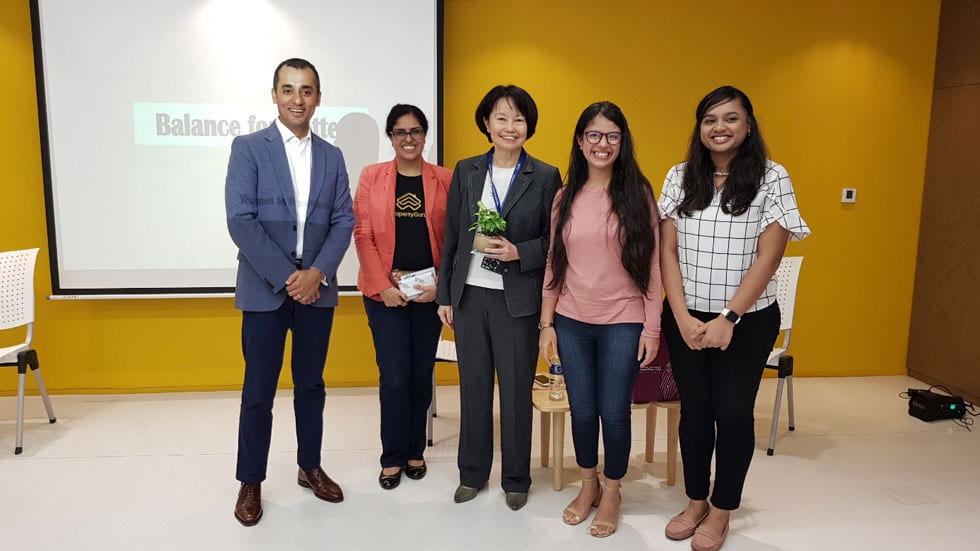 Event organisers and Co-chairs of Women in Business Club (Vanshika Dixit and Pavani Suryapalli) with panellists (Mr Vivek Nath, Ms Mallika Gadepalli and Prof Christina Soh) Thought Leadership  |
| FROM Nanyang Admissions Blog: Taking A Career Leap Into Global Consulting With The Nanyang Emba |
|
Graduate Studies Blog [img]https://blogs.ntu.edu.sg/nbsgradstudies/files/2020/04/Oliver-Plogmann-banner.jpg[/img] NANYANG EMBA TAKING A CAREER LEAP INTO GLOBAL CONSULTING WITH THE NANYANG EMBA Having worked for a large Aviation Group in Europe for 18 years, Oliver Plogmann relocated to Singapore in 2010 to be in the fastest-growing geography for the aviation sector. He had held several industry roles in the Aviation and IT sectors. Oliver realised he had to reinvigorate his career by updating his leadership skills. He was specifically keen to keep up with the evolving market ecosystem and specifics in Asia. He took up a position as a Director for an Aviation IT service provider in Singapore. Fast-forward to three years later, the German senior executive decided to look for the right Executive MBA (EMBA) programme to catalyse his professional growth. “With a multicultural cohort and focus on Asian dynamics, the Nanyang EMBA helped me make a successful transition to Management Consulting. I am currently leading a multinational team across Africa, the Middle East and all of Asia Pacific. “ Oliver shares that he wanted to immerse himself in an innovative learning programme to challenge his global outlook and help him contextualise the industry specifics of his field in the Southeast Asian market. He mulled several options from higher-educational institutions before cementing his decision to apply for the EMBA programme at Nanyang Technological University (NTU, Singapore). “I was searching for a renowned EMBA programme in the region, and I found that NTU offered the best mix and balance of what I was looking for,” explains Oliver. NTU’s unique combination of global industry exposure and regional Asian leadership focus impressed Oliver. He especially appreciated the excellent faculty with relevant industry experience and world-class campus facilities to support on-site sessions for the multicultural cohort. “The Nanyang EMBA programme was my preferred choice because of its focus on Asian Leadership. It helped me hone a dynamic skillset to help me advance in my career with confidence.” “For me, as a German with German education, it was also important to have an international foundation with an overseas EMBA, addressing specifics of the region I am working in,” shares Oliver. The programme also offered a manageable timeframe of study with just 15 months for full-time professionals. Such flexibility enabled him to juggle between family, course commitments, and work obligations, he adds. [b]Managing a Career Transition[/b] While Oliver had in-depth knowledge of the aviation sector, he needed to pick up an innovation toolkit to accelerate his career. “My job in the aviation sector did not require an understanding of business principles like mergers and acquisitions (M&A), valuation of companies, Asian leadership and the dynamics in Asia with international negotiation,” Oliver says. As he desired to transition from an industry role, he wanted to master the whole range of skillsets. “There was a multitude of learning during the programme, not only from the course work but also from the collaboration and exchange with an international cohort,” remarks Oliver. “Furthermore, it was helpful to understand the application of the learned concepts through relevant case studies and real-life industry consulting projects,” he adds. “With updated content and state-of-the-art materials for every intake, NTU can help senior executives cultivate global leadership in the era of digital transformation.” Oliver believes that his time in the Nanyang EMBA helped fast-track his career transition from an industry-oriented role towards high-touch consultancy. In his view, learning alongside a multicultural, multi-industry cohort had empowered him to develop transformative ways of thinking. “The Nanyang EMBA helped me in numerous ways. In my current role, I am leading a multinational team across a large geography, including Africa, the Middle East, and all of Asia-Pacific. Overall, a transition from an industry background and role to management consulting is relatively demanding, as the requirements are very different.” He continues, “While the industry background and experience allow me to understand the diverse contextual challenges faced by the clients easily, I must continuously adjust the advanced application of methodologies to ever-changing circumstances.” Oliver says he now applies his learning from the Nanyang EMBA by leveraging an agile mindset. [b]Digital Transformation and Workforce of the Future[/b] Oliver has witnessed digital evolution disrupting business practices throughout his career in aviation and IT sectors. He, therefore, understands the impact of innovative disruptions. He highlights that the Nanyang EMBA has incorporated a robust digital foundation into its curriculum. “NTU is putting a lot of effort in updating content, presenting state-of-the-art views and materials on the topic for every intake. Such an endeavour is reflected in NTU’s leading position in the field of data analytics and artificial intelligence. The Nanyang EMBA programme provides relevant case studies and classes to address the challenges in innovation and digital transformation as well as the required changes for any professional to cultivate skills to become the workforce of the future,” he notes. These skills are in high demand for emerging roles to fill. “There are numerous new roles across industries thanks to digital transformation. The programme is best suited to develop a dynamic skillset for career transformation,” he says. [b]Building Professional Connections through NTU’s Vast Network of Alumni[/b] The programme also helped Oliver forge lifelong friendships with professionals from diverse industry backgrounds. “Being part of the Nanyang EMBA programme was more than gaining invaluable insights through project assignments or classroom discussions. It was also about building a professional network through the interactions with my peers and the faculty,” he says. The NTU’s extensive network of alumni across sectors continues to support him even well after he had moved forward to the next phase of his life. He says, “I still enjoy access to a fantastic network of knowledge, insights, and capabilities through the vast connection I had established back in the programme. This network still supports my day-to-day life as I can easily reach out to a contact who works in a particular industry to discuss specific questions and challenges.” Advising the other EMBA candidates, he says, “The Nanyang EMBA was an extremely valuable, rewarding, and fantastic experience from both personal and professional viewpoints!” Thus, he emphasises the importance of finding the right programmes that can accommodate personal goals. “For me, the curriculum with an updated and relevant programme, cultural and industry diversity of the cohort, the quality of the faculty, and a robust alumni network were important factors for the decision,” he concludes. To learn more about the Nanyang EMBA programme, please visit our website at [url=https://www.nanyangemba.com/]www.nanyangemba.com[/url] or contact us at [email=ExecMBA@ntu.edu.sg]ExecMBA@ntu.edu.sg[/email]. [url=https://blogs.ntu.edu.sg/nbsgradstudies/tag/alumni-stories/]Alumni Story[/url] [url=https://blogs.ntu.edu.sg/nbsgradstudies/tag/career-progression/]Career Progression[/url] [url=https://web.nbs.ntu.edu.sg/graduatestudies/nanyangemba/LMS/EMBA_AMP_enquiry.html?utm_source=GradStudiesBlog&utm_medium=referral&utm_campaign=Blog_BrochureDownload_20190725_EMBA-GradStudiesBlog&utm_content=nil&utm_term=nil_nil][img]https://blogs.ntu.edu.sg/nbsgradstudies/files/2019/07/Nanyang-Executive-MBA.jpg[/img][/url] |
| FROM Nanyang Admissions Blog: His Ticket To An Mnc Management Trainee Opportunity? An Accountancy Degree |
|
Graduate Studies Blog  MSC ACCOUNTANCY HIS TICKET TO AN MNC MANAGEMENT TRAINEE OPPORTUNITY? AN ACCOUNTANCY DEGREE Barely a year after Eric Shi graduated with a double bachelor’s degree in economics and law from a university in Shanghai, China, he flew to Singapore to embark on the Nanyang Master of Science in Accountancy (Nanyang MSc Accountancy). However, the decision to pursue the master’s degree certainly wasn’t made overnight. Eric was thinking about it for a few years. He gradually gained clarity about accountancy during his undergraduate studies and from engaging in various internships. He says, “While studying economics, I took some basic accounting courses and found them interesting and practical. I really enjoyed organising accounting data and translating them into business insights. Then, in different internship opportunities, I tried finance and accounting roles such as financial analysis, audit, forensic and payroll. The work really suited me. I decided then that my next career step should be in accountancy.” Eric chose Nanyang Business School (NBS) because of its forward-looking approach. For example, the MSc in Accountancy extensively explores the use of technology in the industry with courses like Forensic Accounting and Digital Forensics and Data Analytics for Accounting. It also helps that Singapore has a mature finance sector set in a sunny, pleasant climate, Eric adds. Though he is only halfway through the programme, Eric has already secured his next job: he will join P&G China’s management trainee programme as a financial analyst. He notes three ways that NBS has helped him in getting the job. First and most essentially, the programme gives him a strong foundation that is required for industry. Eric recognised the need to strengthen his accounting background and cultivate his own business thinking from an accounting perspective. He says that the skills he is acquiring from the programme have boosted his competency and confidence to further his career in finance. Second, the school’s Graduate Studies Career Development Office has been training his employability skills. Eric says, “Even before I entered the master’s programme, the Career Development Office already taught us about writing a good resume. We still revise our resumes during the course of study to make them better.” Eric also highlights how the Career Development Office organises events like career talks, mock interview sessions and sharing of advice to sharpen students’ job search. “It’s the kind of practical assistance we need to turn opportunities into positive results,” he says. Finally, Eric notes that soft skills acquired from the programme—such as in the Business Communication course—come in handy. “As a student from China, I don’t have many opportunities to practise speaking in English back in my country,” Eric explains. “The programme not only gives me more confidence in English public speaking, but also teaches storytelling and effective presentation. These skills are very useful when being in interviews with MNCs and having daily conversations with international colleagues.” Eric’s longer-term aspiration is to be a financial controller. “I want to deepen my ability to lead teams in carrying out good financial planning and analysis, making the right decisions and improving shareholders’ equity,” says Eric. “All of these require strong professional knowledge, astute business thinking and capable leadership. In the accountancy programme, I’ve been able to grow in these areas. It has definitely been the right path for me.” Quick tip: Know how you want to benefit from the programme while staying open-minded. “When applying for the programme, consider how it will help you achieve your career goals. Show that you are passionate about learning and the industry. If you have concerns, feel free to contact the nice and helpful Outreach & Admissions Team. During the programme, there will be many opportunities and resources available, so be open-minded and look out for possibilities!” For more information on the Nanyang MSc Accountancy programme, please visit our website. Academic Experience Career Progression Student Life Career Advice  |
| FROM Nanyang Admissions Blog: His Ticket To An MNC Management Trainee Opportunity? An Accountancy Degree |
|
Graduate Studies Blog  MSC ACCOUNTANCY HIS TICKET TO AN MNC MANAGEMENT TRAINEE OPPORTUNITY? AN ACCOUNTANCY DEGREE Barely a year after Eric Shi graduated with a double bachelor’s degree in economics and law from a university in Shanghai, China, he flew to Singapore to embark on the Nanyang Master of Science in Accountancy (Nanyang MSc Accountancy). However, the decision to pursue the master’s degree certainly wasn’t made overnight. Eric was thinking about it for a few years. He gradually gained clarity about accountancy during his undergraduate studies and from engaging in various internships. He says, “While studying economics, I took some basic accounting courses and found them interesting and practical. I really enjoyed organising accounting data and translating them into business insights. Then, in different internship opportunities, I tried finance and accounting roles such as financial analysis, audit, forensic and payroll. The work really suited me. I decided then that my next career step should be in accountancy.” Eric chose Nanyang Business School (NBS) because of its forward-looking approach. For example, the MSc in Accountancy extensively explores the use of technology in the industry with courses like Forensic Accounting and Digital Forensics and Data Analytics for Accounting. It also helps that Singapore has a mature finance sector set in a sunny, pleasant climate, Eric adds. Though he is only halfway through the programme, Eric has already secured his next job: he will join P&G China’s management trainee programme as a financial analyst. He notes three ways that NBS has helped him in getting the job. First and most essentially, the programme gives him a strong foundation that is required for industry. Eric recognised the need to strengthen his accounting background and cultivate his own business thinking from an accounting perspective. He says that the skills he is acquiring from the programme have boosted his competency and confidence to further his career in finance. Second, the school’s Graduate Studies Career Development Office has been training his employability skills. Eric says, “Even before I entered the master’s programme, the Career Development Office already taught us about writing a good resume. We still revise our resumes during the course of study to make them better.” Eric also highlights how the Career Development Office organises events like career talks, mock interview sessions and sharing of advice to sharpen students’ job search. “It’s the kind of practical assistance we need to turn opportunities into positive results,” he says. Finally, Eric notes that soft skills acquired from the programme—such as in the Business Communication course—come in handy. “As a student from China, I don’t have many opportunities to practise speaking in English back in my country,” Eric explains. “The programme not only gives me more confidence in English public speaking, but also teaches storytelling and effective presentation. These skills are very useful when being in interviews with MNCs and having daily conversations with international colleagues.” Eric’s longer-term aspiration is to be a financial controller. “I want to deepen my ability to lead teams in carrying out good financial planning and analysis, making the right decisions and improving shareholders’ equity,” says Eric. “All of these require strong professional knowledge, astute business thinking and capable leadership. In the accountancy programme, I’ve been able to grow in these areas. It has definitely been the right path for me.” Quick tip: Know how you want to benefit from the programme while staying open-minded. “When applying for the programme, consider how it will help you achieve your career goals. Show that you are passionate about learning and the industry. If you have concerns, feel free to contact the nice and helpful Outreach & Admissions Team. During the programme, there will be many opportunities and resources available, so be open-minded and look out for possibilities!” For more information on the Nanyang MSc Accountancy programme, please visit our website. Academic Experience Career Progression Student Life Career Advice  |
| FROM Nanyang Admissions Blog: Agile Leadership In Times Of Crises |
|
Graduate Studies Blog [img]https://blogs.ntu.edu.sg/nbsgradstudies/files/2020/05/Tan-Joo-Seng_banner.jpg[/img] NANYANG EMBA AGILE LEADERSHIP IN TIMES OF CRISES In late March 2020, the CEO of the Marriott chain of hotels, Mr Arne Sorenson, addressed his staff although he was undergoing chemotherapy for pancreatic cancer. He said that this was something he had to do as a leader. In the six-minute long video, [url=https://www.forbes.com/sites/carminegallo/2020/03/21/marriotts-ceo-demonstrates-truly-authentic-leadership-in-a-remarkably-emotional-video/#342326461654]Mr Sorenson[/url] revealed that the Marriott group was closely monitoring the situation and coming up with plans to mitigate “the most devastating period in the history of the 92-year old Marriott” brought on by the COVID-19 outbreak. In another recent online interview with [url=https://www.bloomberg.com/news/videos/2020-04-21/-leadership-live-with-david-rubenstein-marriott-ceo-arne-sorenson-04-20-2020-video]Bloomberg[/url], Mr Sorenson shared about the “emotional rollercoaster” he experiences daily as he feels the anguish of the people whose lives have been profoundly impacted, and how he continues to “navigate in search of tools to deal with the crisis”. “Despite the grim news delivered in both of his appearances, Mr Sorenson’s messages was lauded for being authentic and empathetic. The COIVD-19 outbreak can be likened to a Black Swan event of unprecedented, extreme consequences. We need leaders who can practice an Agile leadership approach in these tough times,” explains Associate Professor Tan Joo Seng from Nanyang Business School, Nanyang Technological University (NTU, Singapore). The current pandemic does not just take a toll on the tangible output of a business. It also places a psychological strain on the workforce—stoking fears of uncertainty, which more often manifest into productivity slowdown. It is at times like this that agility calls upon the leaders to translate their principles into action. Agile leaders, thus, must continually adapt their leadership style to changes, as, by doing so, they adopt a more resilient approach to crisis management. “Agile is more than a mindset: it is also a modality, in which the agile mindset is expressed or demonstrated. Leaders with an agile modality demonstrate authenticity and empathy—critical and defining qualities of leading in times of massive disruption,” explains Associate Professor Tan. “The twin modalities of authenticity and empathy can create agility at scale where new ideas and novel solutions, to cope with the crisis, evolve through collaborative efforts.” These leadership qualities can empower executives to enable agile communication in the form of open dialogue and healthy feedback as clear communication is key to Agile success. Engaging these characteristics in times of crisis can help leaders signal change across the management, rethink new strategies, and assuage concerns among the employees. “Leaders who show authenticity have the courage to be vulnerable and transparent. These leaders are honest in keeping people informed and updated about the situation even though it is challenging, and they may not know when and how the crisis will end. Similarly, empathy is crucial in leadership to maintain morale during a crisis,” Associate Professor Tan explains. [b]The True Qualities of an Agile Leader[/b] The situation faced by the Marriott Group is not unique. Many struggling businesses across the spectrum stare at an important question—as so much is still unknown about the unfolding COVID-19 crisis, how do leaders continue to engage and empower the people they lead? Associate Professor Tan sheds some light on how executives can mould and benefit from an agile mindset in the face of adversity by “using the ‘M&M’ (Mindset & Modality) approach to leading in the times of crises.” The M&M approach is part of the curriculum taught in the “Leadership 4.0 – Leading in Age of Disruption” course in the Nanyang EMBA programme. It was developed based on two years of research conducted with senior leaders from diverse industries. “Agile thinking is more than a mindset: it is also a modality, in which the agile mindset is expressed or demonstrated. Leaders with an agile modality demonstrate authenticity and empathy—critical and defining qualities of leading in times of massive disruption.” Leaders who leverage this approach have the ability to “think about how they can make sense of what is going on, identify the degree of uncertainty they are experiencing, and find out how they can adapt as the situation evolves”. Consequently, they are highly adaptive to challenging circumstances as they understand what it takes to scale agility despite existing disruptions in the workflow. “Leaders with an agile mindset can change plans and work schedules as well as adopt an iterative approach to dealing with the disruption to work and business, including recalibrating business continuity plans (BCPs) to timely address unanticipated obstacles ahead,” he explains. To put things into context, he shares a couple of examples of how companies across diverse industries have stepped up to the plate to help their immediate communities deal with the crisis. The F1 Mercedes team of engineers in the UK has worked with engineers from University College London (UCL) to create respiratory aids for Coronavirus patients. This is a great example of agile collaboration. With the team working round the clock, one of them was sent out to stock up on essential supplies, including toiletries and change of clothes. UCL engineers slept at a hotel next door to MechSpace. The racing mentality of the Mercedes team drove the process forward at breakneck speed. The M&M approach can also be observed here in Singapore. For example, Mr Tan Ming Liang—the CEO of Razer Singapore, the world-leading lifestyle gaming company—has been redeploying some of his manufacturing lines to produce “a couple of million certified surgical masks” within just a month. On [url=https://twitter.com/minliangtan/status/1253550121696006146]Twitter[/url], Mr Tan announced his plan to donate the surgical masks to the frontline healthcare workers around the world to help mitigate the extreme shortage of Personal Protective Equipment (PPE). Razer’s designers and engineers have been working 24-hour shifts to maximise the production at the converted lines. He said, “We are committed to contributing our extra time, resources, effort, and talent towards the fight against COVID-19.” [b]Agile Leadership in Action[/b] The COVID-19 crisis has caused a major disruption in our global supply chains—putting tremendous pressure on businesses across the globe to maintain their operations amidst shutdowns and severe restrictions on movement. In these unpredictable and turbulent times, leaders are expected to rise to the occasion and respond to change with agility. More dynamic capabilities in the areas of risk management, crisis management, and business resilience can make all the difference in the fight against the virus. To create greater organisational agility in the wake of the outbreak, Associate Professor Tan advises executives to explore what they can learn from the Agile movement. He asserts, “The evolutionary development, adaptive planning, and continuous improvement, common in Agile software development, would enable these leaders to have both flexible and faster responses to disruptive changes caused by the pandemic.” Capabilities such as developing a more dynamic approach to risk management, crisis management, and business resilience would be critically needed in the fight against the virus. “Agile leaders can sense when to pivot, and in pivoting, it is not just repurposing existing facilities and capabilities; it is also demonstrating adaptability, resilience, authenticity, and empathy.” Authenticity and empathy are two leadership currencies that any executives need to establish a connection with people at a fundamental level during the time of crisis. Possessing both these traits showcase that leaders are human beings capable of experiencing anxiety and uncertainty similar to others. “Agile leaders can sense when to pivot, and in pivoting, it is not just repurposing existing facilities and capabilities; it is also demonstrating adaptability, resilience, authenticity, and empathy,” Associate Professor Tan concludes. [img]https://blogs.ntu.edu.sg/nbsgradstudies/files/2019/08/Tan-Joo-Seng_jpg.jpg[/img] Associate Professor Tan Joo Seng’s expertise on global leadership, cultural intelligence, cross-cultural negotiation, business model innovation, and leadership in the Age of Disruption is highly sought after by multiple Fortune 500 companies. He is an award-winning educator with extensive consulting and training experience in diverse industries. His current research relates to how businesses and leaders address opportunities and challenges unleashed by the Fourth Industrial Revolution. Click [url=https://nbs.ntu.edu.sg/Programmes/Graduate/NANYANGEMBA/Pages/default.aspx?utm_source=GradStudiesBlog&utm_medium=referral&utm_campaign=Blog_EMBAHomepage_20200506_EMBA-GradStudiesBlog&utm_content=nil&utm_term=nil_nil]here[/url] to learn more about the Nanyang Executive MBA programme or contact us at [email=execmba@ntu.edu.sg]execmba@ntu.edu.sg[/email]. [url=https://blogs.ntu.edu.sg/nbsgradstudies/tag/curriculum/]Leadership[/url] [url=https://blogs.ntu.edu.sg/nbsgradstudies/tag/leadership/]Leadership[/url] [url=https://blogs.ntu.edu.sg/nbsgradstudies/tag/tag/thought-leadership/]Thought Leadership [/url] [url=https://blogs.ntu.edu.sg/nbsgradstudies/tag/tag/academic/]Academic[/url] [url=https://web.nbs.ntu.edu.sg/graduatestudies/nanyangemba/LMS/EMBA_AMP_enquiry.html?utm_source=GradStudiesBlog&utm_medium=referral&utm_campaign=Blog_BrochureDownload_20190725_EMBA-GradStudiesBlog&utm_content=nil&utm_term=nil_nil][img]https://blogs.ntu.edu.sg/nbsgradstudies/files/2019/07/Nanyang-Executive-MBA.jpg[/img][/url] |
| FROM Nanyang Admissions Blog: Student Driven Culture |
|
Graduate Studies Blog 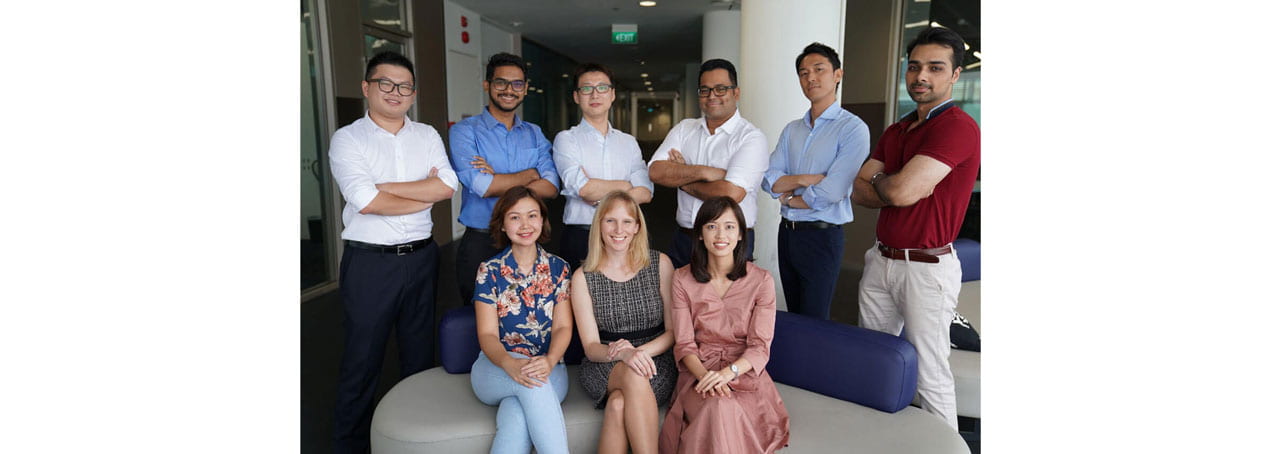 NANYANG MBA NANYANG MBA PARTICIPANT PARTAKES IN MBA WORLD SUMMIT 2019 Article contributed by Shubrat Dutta, Class of 2020. President, ExCo Coming to an MBA programme has always entailed building camaraderie among your cohort and being able to build bridges with the business world outside of school. The MBA programme offered by Nanyang Business School, Nanyang Technological University (NTU, Singapore) places these factors at the forefront of the student experience. Personally, I chose the NTU MBA out of the other schools in Singapore for an industry I had a goal of entering. The significant alumni network and guidance from faculty helps facilitate this goal, but I came away from the year having gained experiences far deeper than I ever expected. Three key highlights that I will touch on include putting together a fireside chat with the APAC CEO of one of the largest multinational companies in Singapore, conceiving and executing the first ever MBA inter collegiate challenge and helping guide the MBA Ex‐Co (Student Council) on hosting a multitude of social and club events. This programme truly shows that the student‐ led efforts lead to the most unique opportunities. When I first arrived for the Nanyang MBA here in Singapore, I only had a goal of entering an industry I was working towards and little interest in much else. However, within the first week of really getting to know all the cohort during the orientation, I was asked to run for the student executive committee (ex‐ co) president. While I was hesitant at first, it was possibly the best decision I have made during my time in the programme. Not only was I given the opportunity to lead a small group of motivated individuals, I also got to see firsthand the power of having a student‐driven culture. The ex‐co put together numerous events ranging from social gatherings, such as a mid‐autumn, Deepavali and Christmas celebrations, to club focused activities like fin‐tech speaker nights. These activities truly helped enrich the programme for all students and provided a great leadership experience for the Ex‐Co. Beyond the ex‐co led activities, I decided to take my passion for the commodities industry and share it with the rest of the cohort. When I arrived in Singapore, I reached out to Mr. Tan Chin Hwee, the CEO of Trafigura, my top target company to join and built a relationship based on a mutual background from NTU. He also serves on the board of trustees at NTU and has a passion for mentoring students. During our discussions, I realised that the best way to really develop a relationship would be to create an event around him. Thus, the CEO fireside chat event was conceived. Over the course of the next two months, I coordinated with faculty, the graduate careers office and event NTU’s student’s union to execute the event with major success. The cohort got access for an intimate 2‐hour session with Mr. Tan and a select number of employees to understand the business, gain mentorship and career advice, learn about Singapore and network with decision makers. I was ecstatic to have been able to interview and build a relationship with Mr. Tan, but more than anything, I was proud of having introduced an exciting industry to the class. Additionally, this experience led to helping coordinate a company visit to the BP offices and build bridges with numerous other CEOs of major companies. As the Ex‐Co president this year, at the behest of the deans from business schools of NTU, National University of Singapore (NUS) and Singapore Management University (SMU), I collaborated with the MBA student leaders at the major universities in Singapore on a first ever inter‐collegiate competition. Within the span of two months, we conceived, planned and executed the first ever Dean’s Challenge with participation from NTU, NUS and SMU. In the future, we plan to involve INSEAD and other major business institutions in the city. The challenge this year consisted of the MBA Olympics held by NTU, an environmental business case challenge by NUS and a talent showcase event by SMU. While NUS took the prize for the Olympics, NTU was able to win the business case challenge, resulting in a much‐ anticipated showdown at the upcoming SMU event. This challenge, and its contingent events, show that student‐driven activities not only lend to the MBA experience but in some ways act as the backbone of a fruitful MBA experience.  The MBA ExCo  Shubrat with Trafigura CEO, Mr. Tan Chin Hwee  The Nanyang MBA Class of 2020 with BP CEO of the Eastern Hemisphere – Ms. Sharon Weintraub  Mid‐Autumn Festival celebration NANYANG MBA NANYANG MBA PARTICIPANT PARTAKES IN MBA WORLD SUMMIT 2019 Article contributed by Shubrat Dutta, Class of 2020. President, ExCo Coming to an MBA programme has always entailed building camaraderie among your cohort and being able to build bridges with the business world outside of school. The MBA programme offered by Nanyang Business School, Nanyang Technological University (NTU, Singapore) places these factors at the forefront of the student experience. Personally, I chose the NTU MBA out of the other schools in Singapore for an industry I had a goal of entering. The significant alumni network and guidance from faculty helps facilitate this goal, but I came away from the year having gained experiences far deeper than I ever expected. Three key highlights that I will touch on include putting together a fireside chat with the APAC CEO of one of the largest multinational companies in Singapore, conceiving and executing the first ever MBA inter collegiate challenge and helping guide the MBA Ex‐Co (Student Council) on hosting a multitude of social and club events. This programme truly shows that the student‐ led efforts lead to the most unique opportunities. When I first arrived for the Nanyang MBA here in Singapore, I only had a goal of entering an industry I was working towards and little interest in much else. However, within the first week of really getting to know all the cohort during the orientation, I was asked to run for the student executive committee (ex‐ co) president. While I was hesitant at first, it was possibly the best decision I have made during my time in the programme. Not only was I given the opportunity to lead a small group of motivated individuals, I also got to see firsthand the power of having a student‐driven culture. The ex‐co put together numerous events ranging from social gatherings, such as a mid‐autumn, Deepavali and Christmas celebrations, to club focused activities like fin‐tech speaker nights. These activities truly helped enrich the programme for all students and provided a great leadership experience for the Ex‐Co. Beyond the ex‐co led activities, I decided to take my passion for the commodities industry and share it with the rest of the cohort. When I arrived in Singapore, I reached out to Mr. Tan Chin Hwee, the CEO of Trafigura, my top target company to join and built a relationship based on a mutual background from NTU. He also serves on the board of trustees at NTU and has a passion for mentoring students. During our discussions, I realised that the best way to really develop a relationship would be to create an event around him. Thus, the CEO fireside chat event was conceived. Over the course of the next two months, I coordinated with faculty, the graduate careers office and event NTU’s student’s union to execute the event with major success. The cohort got access for an intimate 2‐hour session with Mr. Tan and a select number of employees to understand the business, gain mentorship and career advice, learn about Singapore and network with decision makers. I was ecstatic to have been able to interview and build a relationship with Mr. Tan, but more than anything, I was proud of having introduced an exciting industry to the class. Additionally, this experience led to helping coordinate a company visit to the BP offices and build bridges with numerous other CEOs of major companies. As the Ex‐Co president this year, at the behest of the deans from business schools of NTU, National University of Singapore (NUS) and Singapore Management University (SMU), I collaborated with the MBA student leaders at the major universities in Singapore on a first ever inter‐collegiate competition. Within the span of two months, we conceived, planned and executed the first ever Dean’s Challenge with participation from NTU, NUS and SMU. In the future, we plan to involve INSEAD and other major business institutions in the city. The challenge this year consisted of the MBA Olympics held by NTU, an environmental business case challenge by NUS and a talent showcase event by SMU. While NUS took the prize for the Olympics, NTU was able to win the business case challenge, resulting in a much‐ anticipated showdown at the upcoming SMU event. This challenge, and its contingent events, show that student‐driven activities not only lend to the MBA experience but in some ways act as the backbone of a fruitful MBA experience.  The MBA ExCo  Shubrat with Trafigura CEO, Mr. Tan Chin Hwee  The Nanyang MBA Class of 2020 with BP CEO of the Eastern Hemisphere – Ms. Sharon Weintraub  Mid‐Autumn Festival celebration Student Life  |
| FROM Nanyang Admissions Blog: Spring Wine Tasting Event |
|
Graduate Studies Blog [img]https://blogs.ntu.edu.sg/nbsgradstudies/files/2020/05/Wine_Night_banner.jpg[/img] NANYANG MBA SPRING WINE TASTING EVENT Article contributed by Claudia Hsu Ya-Wen and Vishwajit Tirumurti, Class of 2020. With the MBA programme nearing completion and the COVID-19 threat looming large, the Food and Wine Appreciation Club took the opportunity to gather our classmates for what could potentially be our last event of the year! After ensuring that we adhered to the COVID-19 guidelines and advisories, we began our preparation for the party. Our first task was to come up with an enjoyable concept for the party and after some deliberation, we decided to go with a ‘Wine and Cheese’ party with a ‘Cocktail Chic’ dress code. While a tie was mandatory, we permitted our classmates to wear shorts for an informal atmosphere at the event. Furthermore, we felt that the combination of a formal upper half and an informal bottom was apt as it was the attire worn by our classmates for the numerous virtual meetings during this period! The second task was organising refreshments for our 40 peers. Our aim was to provide a wide array of snacks to the satisfaction of each person’s specific tastes. We began with the essentials – 20 bottles of white and red wine, cheese ranging from gouda and cheddar to feta and brie, as well as a variety of olives, nuts, grapes, crackers, and spreads. The event was a huge success, as we achieved our goal of creating a relaxed atmosphere where our classmates could sit back, enjoy the music and let their hair down. We had two self-appointed DJ’s who made sure that there was not a single dull moment all night, while the rest of our classmates were thrilled to partake in their first experience of pairing various types of snacks with alcohol. Our self-appointed photographers also made sure that we had captured enough fun moments for our yearbook through the night! We over-stayed and even brought in the after-party by ordering pizza, bringing the perfect end to an already perfect night! We would like to extend our deepest gratitude to the NBS MBA faculty for providing us with the venue and funding to host these events, and our classmates for providing us with assistance, fun and unparalleled company. It is our sincere hope that this event was an unforgettable page in our classmates’ MBA chapters before we move on to the next phase of our lives. Note: The said event took place before the circuit breaker measures took effect from 7 April 2020. [img]https://blogs.ntu.edu.sg/nbsgradstudies/files/2020/05/wine_event1.jpg[/img] “Cocktail Chic” / Event organiser and Co-chair of Food and Wine Appreciation Club Claudia Hsu Ya-Wen (right) with Ziqi Chen [img]https://blogs.ntu.edu.sg/nbsgradstudies/files/2020/05/wine_event2.jpg[/img] “formal upper half and an informal bottom”/ Event organiser and Co-chair of Food and Wine Appreciation Club Vishwajit Tirumurti (second from left) with fellow classmates, Kartik Jain, Shashank Jha, Vedant Mour and Phoung Nguyen [img]https://blogs.ntu.edu.sg/nbsgradstudies/files/2020/05/wine_event3.jpg[/img] Group Picture in MBA lounge [url=https://blogs.ntu.edu.sg/nbsgradstudies/tag/student-life/]Student Life[/url] [url=https://nbs.ntu.edu.sg/Programmes/Graduate/Documents/NanyangMBA/brochure.html?utm_source=GradStudiesBlog&utm_medium=referral&utm_campaign=Blog_BrochureDownload_20200506_MBA-GradStudiesBlog&utm_content=nil&utm_term=nil_nil][img]https://blogs.ntu.edu.sg/nbsgradstudies/files/2017/12/mba-1kkrpgq.jpg[/img][/url] |
| FROM Nanyang Admissions Blog: Transformative Leaders With A Social Cause |
|
Graduate Studies Blog  NANYANG MBA TRANSFORMATIVE LEADERS WITH A SOCIAL CAUSE In this challenge, teams from NBS, National University of Singapore (NUS), Singapore Management University (SMU), INSEAD and ESSEC were tasked to create and present an innovative business solution targeting plastics in the world’s oceans. 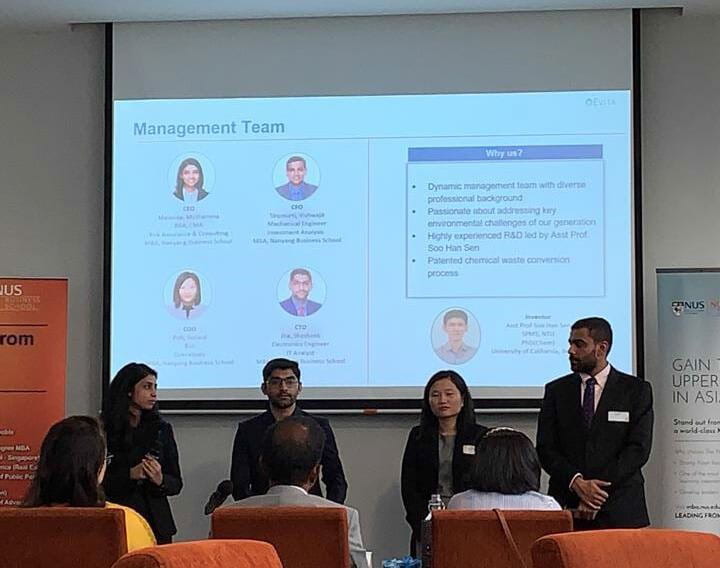 From left to right: Muthamma, Shashank, Suriani and Vishwajit Despite the triumph, the NBS MBA team spoke about their fair share of struggles while prepping for the competition. One of their biggest challenges was finding the best idea to develop into a comprehensive solution that is differentiated from the market and yet still has a significant impact on plastic reduction.  The NBS MBA team being presented with the certificate and trophy One of the academic supervisors, Associate Professor Soo Han Sen from NTU’s School of Physical & Mathematical Sciences (SPMS), guided the team throughout the duration of the competition. Assoc Prof Soo’s expertise in technology helped the team to better understand the technology and the parameters to consider, while scaling the technology beyond the laboratory. In addition to his guidance, the team also conducted multiple interviews with their target audience to comprehend how they can introduce the product into the market. The team shared three key factors which they felt contributed to their victory. Firstly, the integration of expertise from the two faculties – NBS and SPMS – was instrumental in the development of an innovative and comprehensive business proposal for the challenge. Secondly, apart from the environmental impact of the solution, the team also ensured that the business case was feasible, including the business model, financials and operational elements. Lastly, the friendship and knowledge gained during the MBA curriculum enabled the team to be critical yet supportive of one another’s ideas. This enabled them to be able to develop a robust and comprehensive business proposal that they are proud of. The winning team also shared this piece of advice with future MBA participants: “It’s beneficial to reach out and connect with the science and engineering faculties to find out about the innovative work or research that has been done or is in-progress, as well as build a strong partnership to prepare for the challenge.” The win reflects what NBS stands for: Innovate. Lead. Transform. It establishes how NTU’s tech and innovation ecosystem can be leveraged in every business domain to deliver sustainable results for a better future.  The winning team with their classmates who came to give their support Academic Experience  |
| FROM Nanyang Admissions Blog: Driving Entrepreneurial Growth With The Nanyang EMBA |
|
Graduate Studies Blog  NANYANG EMBA DRIVING ENTREPRENEURIAL GROWTH WITH THE NANYANG EMBA Fitness and tech might sound like an unlikeliest pairing for most people. But Walt Steven Young somehow makes the two work in tandem. In between his busy schedule, Walt takes his fitness goals very seriously. “I am a self-professed CrossFit enthusiast,” he says. However, beyond his passion for the fitness sport, he is also an enterprising pioneer in the Philippines’ tech industry. Back in 2002, when digital technology was still in its infancy, he founded his first technology enterprise, a software consulting firm called Innerworks. More than a decade later, he founded Adobomall—the Philippines’ first-ever online shopping platform that leverages power branding and unique virtual shopping experience. It was during the fund-raising for Adobomall that Walt realised the urgent need to pursue an EMBA to understand the complex financial models and term sheets. “We had engaged an external consultant to help with the valuation of the company. It was a costly endeavour. Our extreme reliance on external assistance was the catalyst that cemented my decision to apply for NTU’s Nanyang EMBA programme,” he explains. “The chance to learn at three diverse campuses -– UC Berkeley, Wharton School and NTU Nanyang Business School at Nanyang Technological Univviersity – coupled with a new mindset has been a massive upgrade for me as an entrepreneur.” Walt decided to enrol in the Nanyang EMBA by Nanyang Business School (NBS) at Nanyang Technological University (NTU, Singapore). , which The programme includes residential segments in University of California, Berkeley and Wharton School of the University of Pennsylvania, as its curriculum was designed to incorporate a global business outlook into relevant contexts in Asia. “I chose this programme to gain an edge on my entrepreneurial journey. In particular, I was keen to understand the intricacies of financial management and valuation,” he shares. Developing Leadership and Growth Mindset Walt believes that as an entrepreneur, he is very instinctive. However, a growth company needs a different mindset. He notes, “As an entrepreneur with an extensive background in tech, I often learnt about the business side of things on the fly. While this had moulded me as a person with grit and tenacity, relying on instincts alone, in the past, prevented me from being more deliberate in my decision-making process. I needed a strong core foundation to help me make more robust business decisions.” He realised that as he wanted to scale up his digital companies to the next level, he also needed to upgrade his management skills. “In order to advance in management, one needs to understand all the aspects of leadership. In my experience, I found the Breakthrough Leadership module from my time in the programme to be the most useful for my entrepreneurial growth. Mindset is an abstract concept to define, yet it is easy to understand by way of case studies and best practices from across the world and Southeast Asia,” Walt says. “I formulated and implemented immediate knowledge transformation plans for both of my companies based on the learnings from the Nanyang EMBA.” The Nanyang EMBA’s curriculum had the correct balance of the relevant modules that he found useful. “The programme has given me a holistic view of the business aspects, in that it enabled me to experience a more structured approach to learning. The programme also gave me a chance to understand the intricacies while maintaining a general business outlook,” Walt asserts. Greater than the Sum of Its Parts “Oftentimes, little things add up to form a big picture. My EMBA experience was similar. The impact was greater than the sum of its parts!” says Walt. The benefits of the programme were manifolds and immediate to him and his company. “This is an Asian Century; we need an Asian perspective. More than that, we need to understand leadership development in the Asian context,” he states. Walt has been able to synergise various business toolkits he learnt at NTU to accelerate change in his evolving Software Consulting Firm and thriving Digital Commerce platform. “I formulated and implemented immediate knowledge transformation plans for both of my companies based on the learnings from the programme,” he shares. “My NTU Nanyang EMBA experience was greater than the sum of all parts. The course helped me redefine the growth trajectory of my startup.” Having become financially astute since he completed the programme, Walt now possesses comprehensive financial knowledge to understand the intricacies of valuation and financial modelling for growth and expansion projects. The topic of valuation has become all the more pertinent for Walt in recent times. He discloses that Adobomall is currently in the process of expanding its market ecosystem to include key industries like air travel, utilities, and healthcare services. Such a success is attributable to the company’s strong year-to-year performances and dynamic ability to recognise growth areas more proactively. The benefits of the programme for his managerial skills were also prompt and far-reaching. He reveals that the EMBA courses have empowered him to redefine Adobomall’s corporate structure as he was able to directly apply his knowledge to various business contexts to further optimise the processes in the company. Walt encourages other senior executives and entrepreneurs to elevate their current business outlook through an EMBA programme. “My experience at NTU has been a great stepping stone for me as an entrepreneur—to grow myself and seek befitting solutions that set my entrepreneurial visions up on a path to success,” he concludes. Click here to learn more about the Nanyang Executive MBA programme or contact us at execmba@ntu.edu.sg. Alumni Stories Career Progression Entrepreneurship Leadership  |
| FROM Nanyang Admissions Blog: Financial Engineering Degree Opens The Doors To Dream Careers For This Couple |
|
Graduate Studies Blog  FINANCIAL ENGINEERING DEGREE OPENS THE DOORS TO DREAM CAREERS FOR THIS COUPLE Lu Danqing was working in a bank for a few years when he realised his passion for derivatives valuation. “I decided that I wanted to be in derivatives for the long term in my career, so I chose a master’s degree in financial engineering,” he says. He opted for Nanyang Business School (NBS) after attending a few seminars and consulting friends and colleagues who have graduated from a similar programme. “I was convinced that the Nanyang Master of Science in Financial Engineering (MSc Financial Engineering) could offer the best structure with the most depth in derivatives valuation,” says the alumnus from NBS Class of 2019. The programme delivered. First, it helped to boost Danqing’s qualifications, and he became eligible for the screening stage of a potential job. Danqing was delighted to clinch the job upon graduating from the programme: it was a role in valuation control in American hedge fund firm, Point72 Asset Management. Next, the programme trained him well in the skills and knowledge required for the new role. “Today, part of my scope involves the pricing of structured products across different asset classes. I’ve been up to the task,” he says. “The networks have also been important. There was a seven-week term at Carnegie Mellon University. It helped me to gain context and form closer relationships with some of my colleagues, who have graduated from top U.S. universities.” Danqing did not stop at enrolling himself in school. He also got his wife on board. Zhang Xiaomeng joined the following academic year. “My husband encouraged me, as he knows that the degree would fit my interests in mathematics and programming,” she says. “At the same time, I was considering a career change.” Upon completion of the MSc Financial Engineering programme, Xiaomeng successfully made a career switch by joining Standard Chartered Singapore as a model validation manager. “Model validation requires hard knowledge in stochastic calculus and programming—skills that I acquired in the programme. I especially enjoyed the course on Stochastic Calculus for Finance. It was a challenging but interesting course: I continue to be impressed by how uncertainties in stock prices and interest rates can be modelled with the random motion of particles, which is an idea from physics.” Xiaomeng treasures the highly enthusiastic faculty as well. “For example, Professor Charlie Charoenwong has been so passionate in teaching and interacting with students,” she says. “Through his class, I started to truly appreciate the connection between mathematics and finance. My course mates are smart and hardworking people, they inspire me.” There was a period where Danqing and Xiaomeng’s academic calendars coincided and this was a unique experience that brought back good memories. “We’ve known each other for 20 years since we were classmates back in high school,” Xiaomeng says. “Studying together again makes us feel 20 years younger!” Danqing jokes: “When I first started on the programme, I sometimes received complaints from Xiaomeng about spending the weekends doing homework. Now that Xiaomeng is deep in it, she is experiencing how demanding the master’s degree can really be.” Quick tip: You will be challenged. And rewarded. Danqing says, “The programme is extremely intensive. Be prepared! But don’t worry, as you will study with a group of very smart and sweet faculty and classmates.” Xiaomeng adds, “Don’t take the learning journey for granted. Grasp every opportunity and you will grow. Don’t hesitate to ask questions because this is a once-in-a-lifetime experience, where you will learn from the best faculty and peers.” Alumni Stories Academic Experience Career Progression Student Life |
| FROM Nanyang Admissions Blog: Double Degree Strategy and International Management and MBA |
|
Graduate Studies Blog  NANYANG MBA DOUBLE DEGREE STRATEGY AND INTERNATIONAL MANAGEMENT AND MBA Article contributed by Julia Leuchtgens – MBA Class of 2020. As a participant in the double degree programme between the University of St. Gallen and Nanyang Business School (NBS), Nanyang Technological University (NTU, Singapore), I will receive two degrees upon my graduation – a Master of Arts in Strategy and International Management (“SIM”) and a Master of Business Administration (MBA). The two programmes are complementary as the focus of each lies on different aspects of business and its challenges. While courses such as International Management and Exploring Sustainability as Strategic Opportunity in St. Gallen and Strategic Brand Management and Strategic Technology and Innovation Management at NBS have influenced my perspective on strategy in completely different ways, the core modules reinforced what truly matters in today’s globalised and dynamic world – Strong Leadership with a Purpose. The SIM programme is a multifaceted experience, which gave me great insights into the theory of strategy and how to apply it. Courses were quite interconnected and I especially enjoyed modules such as Strategic Management where all the frameworks, insights from case studies and real-world news came together. One highlight of the programme was the SIMagination Challenge which gave us the chance to support a social project of our choice. My team worked closely with the NGO Niños en Xela, which strives to support single women and their children in the highlands of Guatemala. We collected donations and worked on new business plans for our initiative and in February, each team visited its respective project all over the world including Uganda, South Africa, Guatemala and Cambodia. The cohort in St. Gallen was small and with around 50 students from all over the world, we built a community which was united in its diversity. St. Gallen is a small beautiful town in Switzerland and apart from what I have learnt in the university context, I cherish the memories of exploring the mountains and culture of Switzerland together with my classmates. The SIM spirit grew and drew all of us closer together. Apart from studying, we explored several cultural events such as OLMA, a big annual fair in St. Gallen, Christmas markets in Zurich and our entire cohort went to Madrid together for a weekend full of fun and engaging activities. Once a month, I participated in so-called “running dinners” where teams of students cook meals together and share them with other students. It was a great way to get to know new people and learn about different cuisines. We frequently got the chance to participate in career info sessions and workshops in Zurich which were organised by companies such as BCG and I greatly appreciated networking with experts from the industry and my fellow classmates there as well. Last but not least, hiking became one of my favorite activities – the train system in Switzerland is amazing and with my friends, I discovered some of the nicest hiking paths and lakes in the mountains I have ever seen! The MBA programme was a whole new experience altogether – not only was it set in an Asian context, in a dynamic place such as Singapore, the way of learning and teaching was also different. Most of my classmates had multiple years of work experience which was one of the core assets in each class. Case discussions were led with a more open structure, while theory was always a backbone – examples from personal work experiences were stressed and discussed in depth. While the SIM programme put high emphasis on strategy and leadership, the MBA united students with diverse professional backgrounds and gave them different focus tracks to choose from. One highlight of the year was the Business Study Mission during which our cohort split into two groups and went to Tokyo and Shanghai to meet professionals from well-reputed companies across industries in Japan and China. We got unique on-site insights and our friendships grew closer by the day. The experiences from this trip will always be a special memory as I move forward. The course series Leading People Globally complemented the leadership modules I had taken in St. Gallen and re-emphasised the importance of cultural exchange, mutual and respectful understanding and integrity within a leader. Another challenging but great experience has been working with my team on a SPAN project for Peak Hospitality: we developed a go-to-market strategy for the company and were supported by our mentor and the CEO of the company. We worked closely together on real life problems and as COVID-19 has especially impacted the hospitality industry, we learnt what adapting goals and an agile style of working really means. Another deep learning experience for me during the year was extracurricular: I was one of four participants from my cohort selected to represent NBS at the John Molson Case Competition in Montreal, Canada. We trained and prepared for the competition for months. During this period, I did not just learn how to approach case studies and develop real life strategies with implementation plans, I also learned how a truly functioning team works. After a 25-hour flight from Singapore, we reached Montreal in January and had one of the most interesting, challenging, enriching and tiring weeks of our lives. The whole preparation journey, the tension during the competition itself and the interaction with 35 other teams from all over the world made me get out of my comfort zone. We won the third prize in the end, but the most important thing we took away from the experience was team spirit, self-confidence and new knowledge. During the MBA programme, living on campus was a major part of student life. Living so close to each other was great as we could meet each other regularly, both for social events organised by the MBA Executive Committee (e.g. Mid-Autumn Festival, Christmas Party) or for gatherings in our dorm lounges. The NTU campus is on the western end of Singapore and is very lush and green with running tracks and gardens. We frequently went into the city to explore different festivals and events in different parts of Singapore, such as Little India and Chinatown, and it was a lot of fun exploring different cultures with a diverse group of friends. I enjoyed travelling in South East Asia as well, as Singapore is right in the close to many interesting countries such as Indonesia, Malaysia or Thailand – and as always, I have very fond memories of travelling abroad with my friends from the MBA programme. In hindsight, embarking on my double degree journey was the best decision I could have made as I grew beyond what I had expected, both personally and professionally. I am well-equipped to take on new challenges and strive to follow my career dreams, and above all I have built friendships which will hopefully last a lifetime. I am grateful for every person I have met, both students and professors, as in the end, both programmes were so special because of what I have learnt in the classroom and from others. 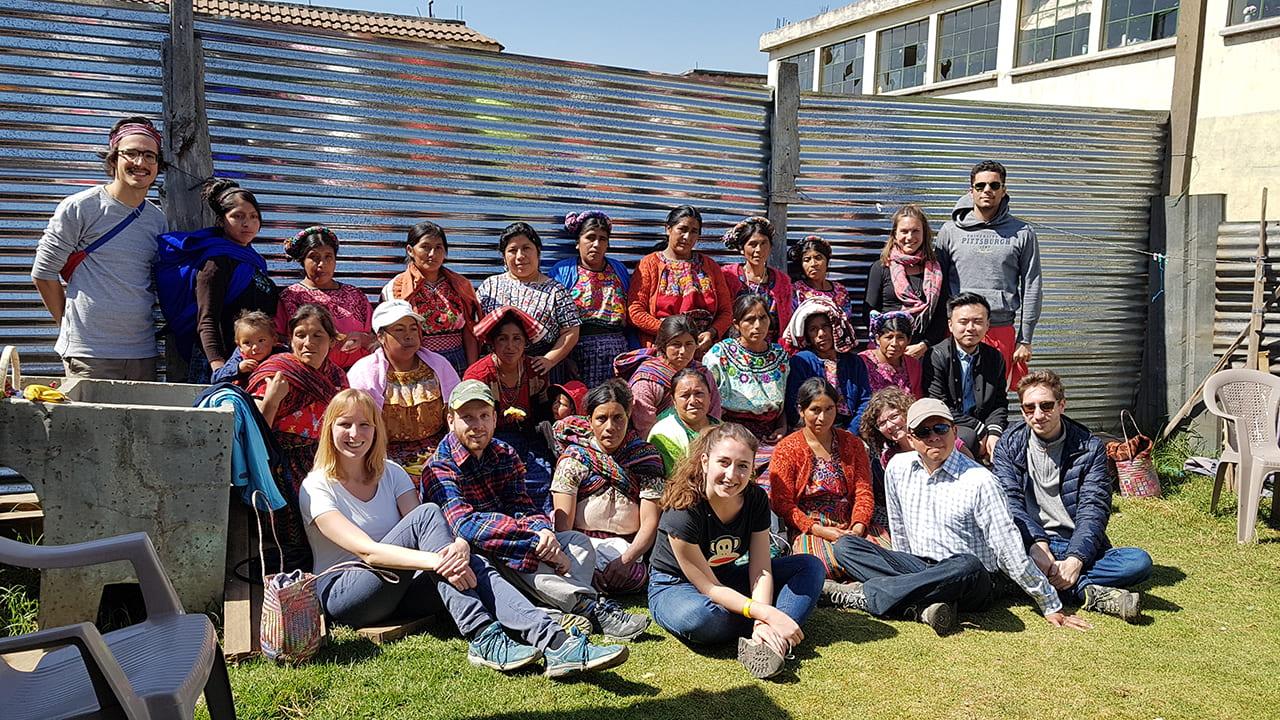 Our SIM team with the women supported by the social project Niños en Xela in Guatemala (February 2019) 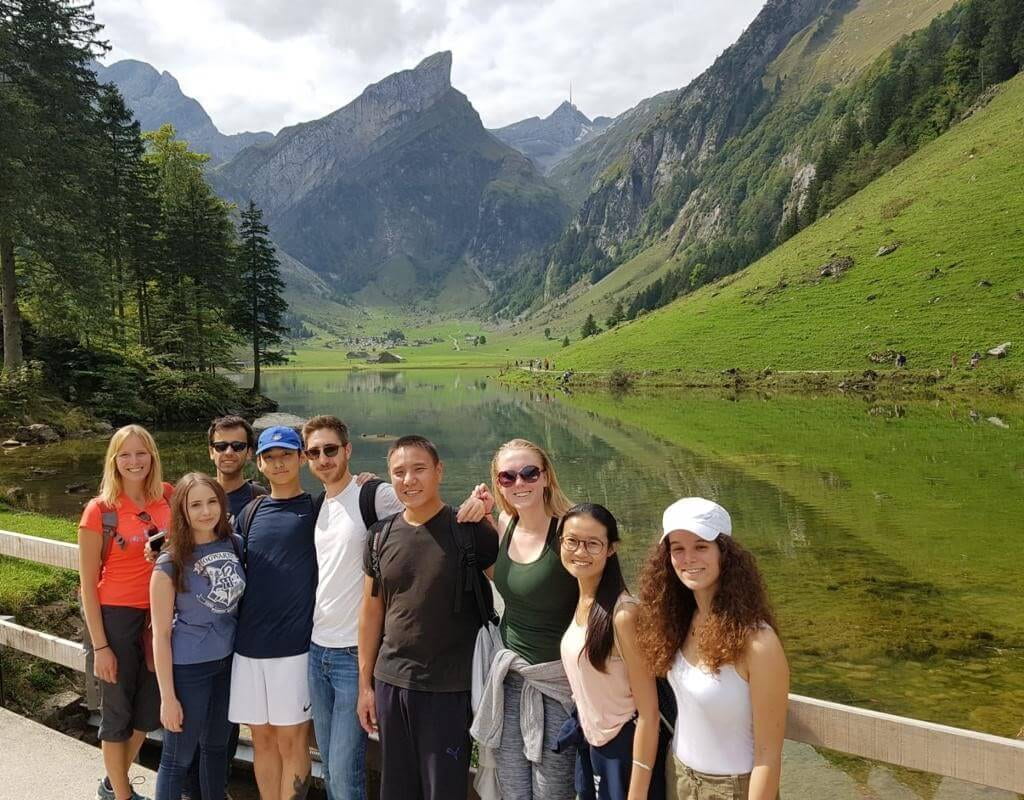 Hiking with some of my SIM classmates in Appenzell, which is 1 hour by train from St. Gallen (September 2018)  Octoberfest theme party during orientation of the SIM programme (September 2018)  Enjoying a night out at the famous Lau Pa Sat hawker center with my MBA friends (January 2020) 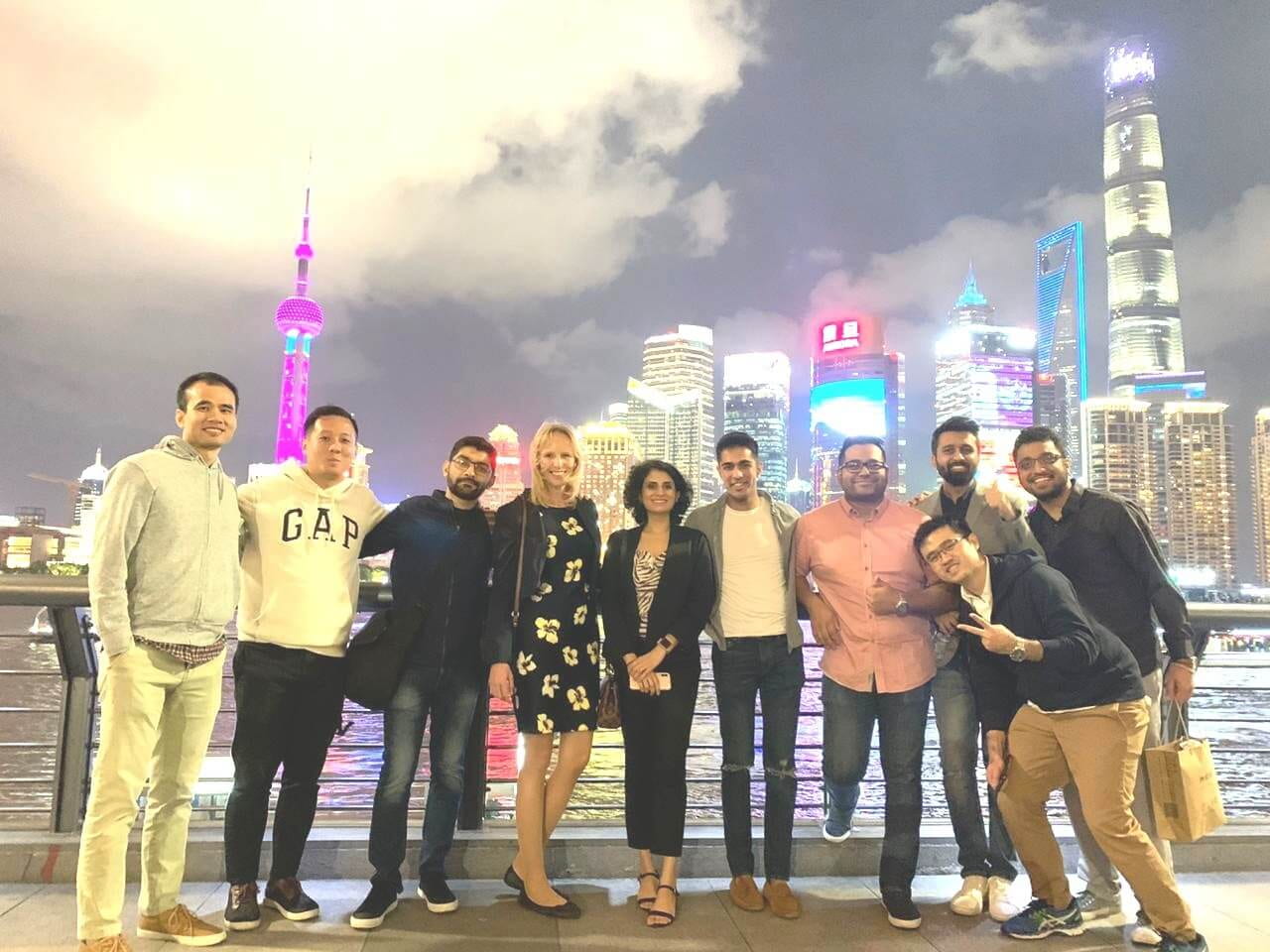 Taking a stroll in front of the beautiful Shanghai skyline at The Bund during our BSM (October 2019) 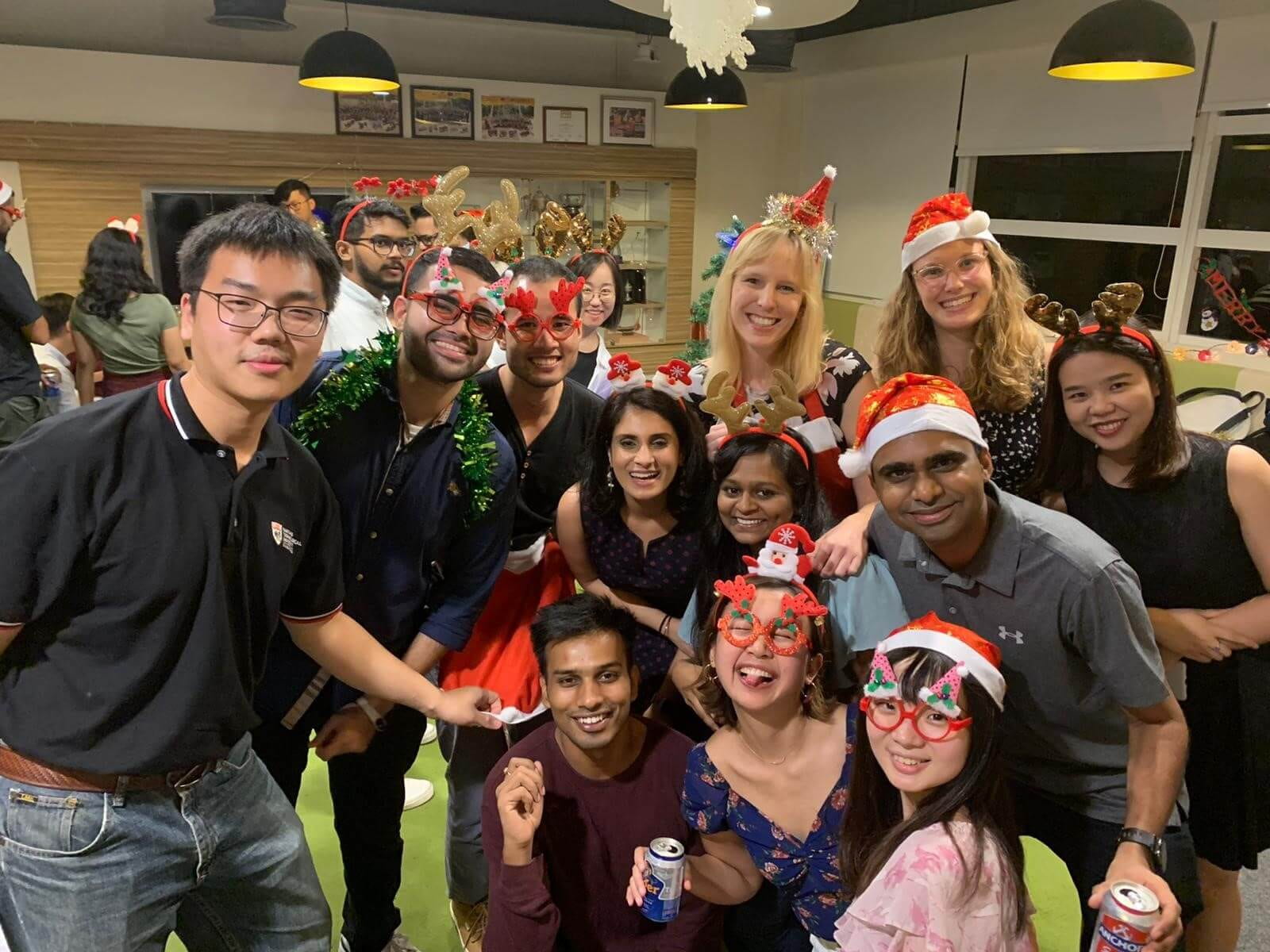 We had great fun at our MBA Holiday Party just before the Christmas break (December 2019)  Celebrating our win at the John Molson International Case Competition in Montreal, Canada (January 2020) Academic Experience  |
| FROM Nanyang Admissions Blog: A Nanyang Business School fan: first an accountancy degree, next a MSc Financial Engineering |
|
Graduate Studies Blog  NANYANG Financial Engineering A NANYANG BUSINESS SCHOOL FAN: FIRST AN ACCOUNTANCY DEGREE, NEXT A MSC FINANCIAL ENGINEERING Yu Wenjin graduated from Nanyang Business School (NBS) with a Bachelor of Accountancy in 2015. Two years later, she enrolled in NBS’ Master of Science in Financial Engineering (MSc Financial Engineering). Since graduating from the programme in 2019, Wenjin essentially has two Nanyang Technological University (NTU) degrees under her belt. So, what makes her a huge fan of NTU’s NBS? For one, Wenjin has high regard for the school’s faculty. “Sit in on the lessons and you can tell there is a first-class faculty in NBS,” she says. “They’re so knowledgeable. More importantly, they’re extremely dedicated educators. Apart from equipping us with the theoretical knowledge, they also spent a lot of time showing us how we can apply it to solve real-world problems.” Wenjin emphasises that NBS students should leverage the school’s strong alumni network that is “willing to share information, experience and resources” “You’re never alone in your NBS journey. The alumni and the Career Development Offices are helpful if you need advice on developing yourself. They’re very enthusiastic in providing guidance—especially when MSc Financial Engineering participants are seeking job opportunities in the market,” continues Wenjin. Wenjin began her career as a risk analyst in financial institutions and continues to hone her skills in the field, particularly in credit risk. “I decided to pursue the Nanyang MSc Financial Engineering because I wanted to improve my statistical and programming skills,” she says. The programme is very different from the accountancy degree, she explains, where the former focuses on financial market products, statistical modelling and mathematical theories. “That is why I advise potential students of the programme to build up their foundation in mathematics and programming,” she adds. Armed with an accountancy degree and the data-oriented MSc Financial Engineering master’s, Wenjin’s career opportunities widen and she broadened her search upon graduation. She soon clinched credit analyst roles in large companies like Goldman Sachs and BNP Paribas. “The Nanyang MSc Financial Engineering has definitely escalated my career progression,” Wenjin says. “For my current role as a credit analyst in BNP Paribas, the programme prepared me with a strong foundation in equity derivatives, credit derivatives and structured products. The programming skills I picked up are also helpful. I’ve been able to reduce manual processes and improve work efficiency.” Two courses Wenjin has found especially useful for her work are Equity Portfolio Management and Bond Portfolio Management. “My team and I often need to conduct due diligence on hedge funds or asset managers to assess their credit risk. These two courses helped me to better understand their investment strategies and the potential risks involved,” says Wenjin. Wenjin chose to opt-out of the Carnegie Mellon University (CMU) term in the U.S.A and completed more electives in NBS. Added Wenjin, “it was more intensive, as I had to complete the electives within a short period of time but they were definitely useful electives!” Quick tip: Prepare yourself mentally and emotionally. “Build up a strong foundation in mathematics. Have good time and stress management, as Nanyang MSc Financial Engineering courses are quite intense.” For more information about the Nanyang MSc Financial Engineering, visit www.mfe.ntu.edu.sg. Alumni Stories Academic Experience Career Progression Student Life  |
| FROM Nanyang Admissions Blog: NTU EMBA Alumnus Dr Chea Vandeth Enables Future Workforce with Quality Education in Cambodia. |
|
Graduate Studies Blog  NANYANG EMBA NTU EMBA ALUMNUS DR CHEA VANDETH ENABLES FUTURE WORKFORCE WITH QUALITY EDUCATION IN CAMBODIA Dr Chea Vandeth—the Class of 2016 EMBA alumnus and currently Cambodia’s Minister of Posts and Telecommunications—shares how his time at Nanyang Technological University, Singapore (NTU, Singapore) helped him cultivate strong leadership to create social impact in his home country of Cambodia. Teachers need to learn too! Nanyang Executive MBA (EMBA) alumnus Dr Chea Vandeth appreciated the value of good pedagogy and therefore wanted to learn from the best. “Soon after my Ph.D. in 1997, I returned to my home country and taught at two universities in Cambodia,” Dr Chea shares. While teaching, he observed that good quality education was still lacking. “While the number of public and private universities had increased to more than a hundred, there were increasing concerns about education quality due to this rapid growth. Having seen this challenge, I thought Cambodia needed a good university to provide a benchmark,” he explains. Dr Chea, who is currently Cambodia’s Minister of Posts and Telecommunications, had foreseen the growing importance of technology in improving the quality and access to his country’s education system. On his quest to leverage digital innovation in the country’s education system, Dr Chea came to Singapore to gain more knowledge on good governance and digital transformation. He was particularly interested in the Nanyang EMBA programme as it offered the specifics he needed to deepen his understanding of the Western education system, and how it could be applied in the Cambodian context. The programme’s unique overseas residential segments in the USA gave him the global exposure he sought to broaden his perspectives. Such exposure was incredibly useful as his current ministerial post always challenges him to cultivate a global leadership mindset to solve complex problems. “The Nanyang EMBA programme helped me acquire transformative knowledge by delving into successful and unsuccessful case studies from around the world. I have also gained more experiences from my peers who were working executives from the private and public sectors.” Implementing Change with Executive Education Dr Chea Vandeth believes by leveraging technology in higher education, Cambodia can build a more robust workforce amidst a ferocious labour market. “Robust tertiary education can lay down a strong foundation for a successful digital transformation in Cambodia and help us leapfrog the development stages by taking advantage of the fourth industrial revolution in the upcoming years,” he says. Having seen this challenge, Dr Chea realised Cambodia needed a good university to provide the best model for others to benchmark. In 2013, he finally implemented his vision. Dr Chea recounts, “In consultation with several universities in the USA, I decided to establish the American University of Phnom Penh (AUPP) to provide rich and poor Cambodian students equal opportunity to receive a quality education.” AUPP is the only university that provides internationally recognised US-accredited degree programmes to students in the country. At the university, 45 percent of outstanding students receive a scholarship, while the remaining 55 percent pay the tuition fees themselves, he adds. The confluence of learnings from NTU equipped Dr Chea with relevant leadership and technical capabilities to implement changes at AUPP to remain competitive in the era of globalisation. “Studying at NTU provided me with a lot of useful tools to make AUPP stronger in education management and to transform AUPP to be the leader of higher education in Cambodia.” Building the Workforce of Tomorrow Dr Chea believes that higher education with a strong international foundation is playing an even more important role in Cambodia’s economic growth. Combining rich and vibrant Cambodian culture with the global outlook, the hybrid education model as exemplified by AUPP can push the boundaries of learning to help students grow and think more critically to answer the pressing needs in the Cambodian society. “We strive to build a tertiary education system that prepares students to be the future innovators and leaders of tomorrow as they will become the engine that drives Cambodia into the ASEAN integration,” he says. Enhancing greater access to quality education also requires strong digital infrastructure on every front. The Nanyang EMBA’s digital focus inspired Dr Chea to create a development trajectory that seeks to eradicate the digital divide in his country. To achieve this vision, Dr Chea underscores that the Cambodian government must focus on strengthening infrastructure development and broadband connectivity. “We will facilitate the adoption of technology in education, the business community, NGOs, and households. We will also ensure good governance in the technology sector by developing effective policies and regulatory frameworks, together with the development of ICT human capital,” he concludes. Click here to learn more about the Nanyang Executive MBA programme or contact us at execmba@ntu.edu.sg. Alumni Stories Career Progression Social Impact Leadership  |

|
|
||
|
Hi Generic [Bot],
Here are updates for you:
ANNOUNCEMENTS
Watch earlier episodes of DI series below EP1: 6 Hardest Two-Part Analysis Questions EP2: 5 Hardest Graphical Interpretation Questions
Tuck at Dartmouth
|